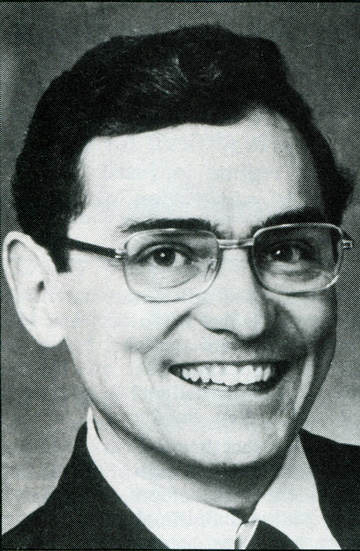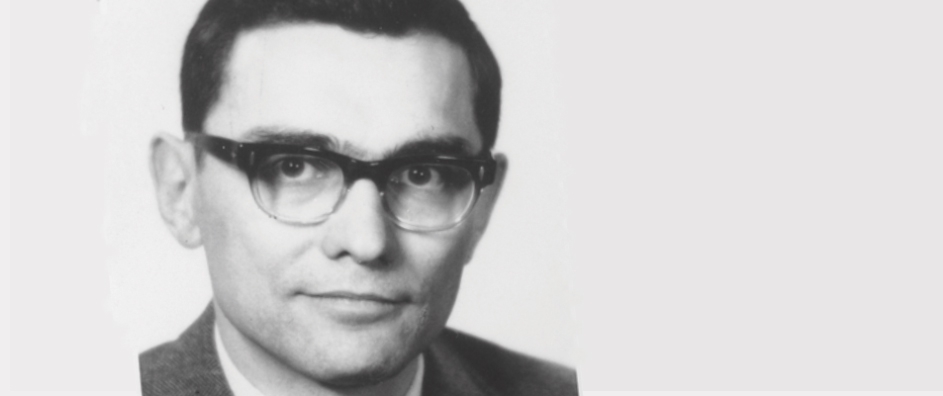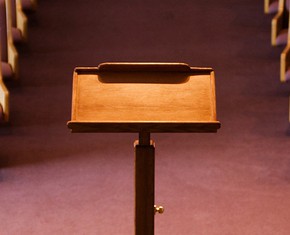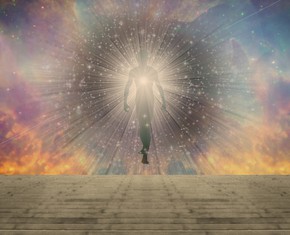The views expressed in our content reflect individual perspectives and do not represent the authoritative views of the Baha'i Faith.
One of the truly wonderful things about being a Baha’i? The people you meet.
As a young Baha’i growing up in Arizona, I had the privilege and the joy of meeting and getting to know some really remarkable individuals. Because the Baha’i Faith is so diverse and so varied, with people from literally every culture and every walk of life, I met Navajos, Hopis and Apaches; I met physicians and construction workers; I met comedians and CEOs; I met black activists and Hispanic great-grandparents and Pacific Islanders; I met musicians and writers; I met Persians and Tongans and Kenyans and Alaskans and Russians; I met enthusiastic kids and accomplished adults and wise elders. Most of all, the friendly, warm Baha’is I met showed me something I had never encountered before—they were all serious, creative people trying to change the world.
For me, discovering the Baha’i community and the remarkable people it contained was a revelation in and of itself—it opened my eyes to the enormous latitude of possibilities and pathways I could potentially choose from.
If you know Baha’is, you probably know what I mean. In my pre-Baha’i environment, growing up in a large blue-collar family, my parents had few world-changing aspirations—they felt good about simply putting food on the table. My father’s family had emigrated from Norway, and they, too, struggled to just get by in America through hard labor and persistence. In some ways, my siblings and I comprised the first generation who had the opportunity to think about and potentially do something about the state of the world.
So when I encountered the Baha’i community and began to meet and get to know its incredibly diverse array of very different and yet very united people, I became intensely curious about their lives. When I met someone who interested me at a Baha’i meeting, I developed the (probably quite annoying) habit of quizzing them about their life path. Like a budding but not very savvy teenaged journalist, I asked them how they had decided to do what they did; what experiences and inner convictions brought them to their spiritual path in life; and who they really wanted to be when they grew up.

Dan Jordan
I asked my naïve but sincere questions to heavy equipment operators, Middle Eastern studies scholars, African doctors, state bureaucrats, a Navajo medicine man, race car drivers, gold prospectors, scientists, sculptors and songwriters. I loved meeting these wildly diverse, fascinating people and discovering their worlds. One of the most fascinating Baha’is I ever asked my questions to, though, turned out to be a musician, educator and philosopher named Daniel Jordan.
I met Dan one night at a Baha’i fireside—a casual introductory meeting where he spoke about the Baha’i principles. A slight, intense man who wore black-rimmed glasses, Dan first played two classical pieces on the piano, where he had obviously developed a high level of expertise. At the time I had no clue about classical music, but I could see how Dan’s fluid and powerful playing emotionally affected the audience, so when they gave him a standing ovation I stood, too.
Then Dan delivered an erudite, witty, insightful talk about Baha’u’llah’s vision of a future state of human society. In his short, enthusiastic presentation, he laid out the blueprint of a unified, peaceful future world—where racial prejudice and hatred had disappeared; where swords had been beaten into ploughshares; where national borders had been erased; where women and men were finally equal; where science and religion agreed; where a universal auxiliary language allowed everyone on Earth to communicate with each other; where love and kindness and human creativity flourished. He asked us all to help bring that beautiful vision into reality. At the end, he quoted this passage from Baha’u’llah:
This is the Day in which God’s most excellent favors have been poured out upon men, the Day in which His most mighty grace hath been infused into all created things. It is incumbent upon all the peoples of the world to reconcile their differences, and, with perfect unity and peace, abide beneath the shadow of the Tree of His care and loving-kindness. – Gleanings from the Writings of Baha’u’llah, p. 6.
I will never forget Dan’s talk that night. It moved me tremendously, and gave me a glimpse of what our world could become. I had become a Baha’i long before I met Dan, but in some mysterious way his talk gave me a new and deeper sense of what it meant to really incorporate the Baha’i teachings into the center of my being. From that moment on, I resolved to try to live a Baha’i life, as Dan obviously did.
Then, after the fireside, we sat down and talked. I asked my questions, and despite their obvious lack of sophistication, Dan answered patiently and kindly. I learned that he had been a child prodigy and piano virtuoso at a very young age, getting his first Bachelor’s degree from the University of Nebraska at 17. At the age of 18 he became the first American ever to win a Rhodes Scholarship for music. Dan earned Bachelors and Master’s degrees in the composition, theory and history of music from Oxford University in England, I found out, and he turned down an offer to play Beethoven’s “Emperor’s Concerto” with the Oslo Symphony, which would have propelled him onto the tour circuit as a concert pianist.
He spent two years in the Army in the 1950s, which helped to convince him that humanity needed a new direction, a more spiritual inclination.
So Dan radically altered his career direction at that point, to the study of human development, beginning collegiate studies all over again at the University of Chicago, where he earned a master’s degree in his new subject. In 1964 he received his Ph.D. in human development, with specialization in social anthropology and psychology. He went on to carry out a post-doctoral sequence in brain structure and brain chemistry and their relation to memory, emotion, and learning.
But more importantly than any of his outward achievements, Dan told me, he became a Baha’i in 1954 at Oxford, and his spiritual life immediately began to affect everything he did.
Next: The Anisa Project: A Baha’i-Inspired Educational Model
You May Also Like
Comments

















George Karko, Toowoomba, Australia
By the way, I thank you Mr. Langness for your excellent articls in Bahaiteaching.org.
Dr. Zabihollah Naghashian
https://library.stanford.edu/news/2016/03/stanford-libraries-acquires-historic-daniel-c-jordan-archives